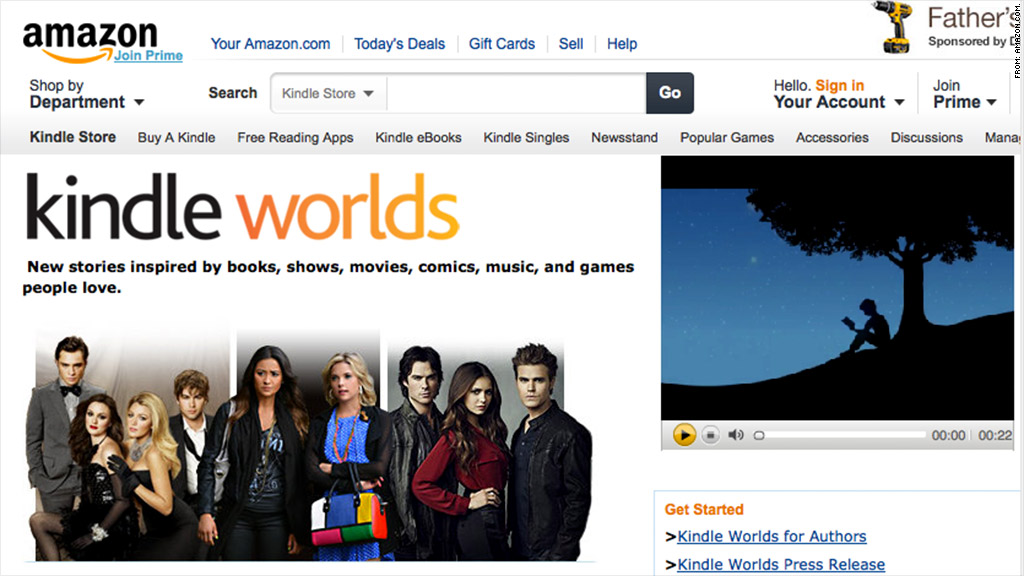
Fan fiction, in which aficionados of existing books and movies write characters into new storylines, has long been popular fodder on Internet forums -- but stories based on copyrighted works are essentially impossible to sell. Amazon wants to change that with its new "Kindle Worlds" program.
Kindle Worlds, which Amazon Publishing announced on Wednesday, lets authors write "fanfic" based on licensed series and sell their works in the Kindle Store. Authors will receive 35% of net sales for books of 10,000 words or more, and 20% for short stories between 5,000 and 10,000 words. Amazon didn't disclose how the rest of the sales will be split between the company and the copyright holders.
So far, Amazon has licensed three female-teen-centric series from Alloy Entertainment: "Gossip Girl," "Pretty Little Liars" and "Vampire Diaries," all three of which are book series that were made into television shows. (Alloy is owned by Warner Bros. Television, a division of CNNMoney corporate parent Time Warner (TWX).)
Amazon (AMZN) plans to add more licensed titles soon. Authors will be able to submit completed works beginning in June, when the Kindle Worlds store will launch with 50 titles Amazon commissioned from successful authors including Barbara Freethy and John Everson.
Amazon's licensing program is a big first step in legitimizing fan fiction, as authors looking to sell their stories currently are forced to tread lightly or face copyright lawsuits. "Pride and Prejudice and Zombies" is based on Jane Austen's novel, which is in the public domain after the copyright expired. "Fifty Shades of Gray" started out as erotic "Twilight" fan fiction, but E.L. James reworked the setting, characters' names and other details to sidestep copyright issues.
But signing on with Amazon means fanfic authors will have to play by Amazon's rules. The company's content guidelines for authors include six no-nos: pornography, offensive content, illegal/copyright infringing content, poor customer experience (i.e., misleading title or a poorly formatted novel), excessive use of brand names and "crossover" stories that include elements of two different series.
So "Fifty Shades of Gray"-style erotica won't cut it here. Nor can a primetime TV fan drop the physicist nerds from "The Big Bang Theory" into MacLaren's Pub to meet the gang from "How I Met Your Mother" and see what hilarity ensues.
Still, fan fiction writers may see those items as small concessions, given that Amazon has created a platform for them to make some cash. Just leave the whips and chains at home.

